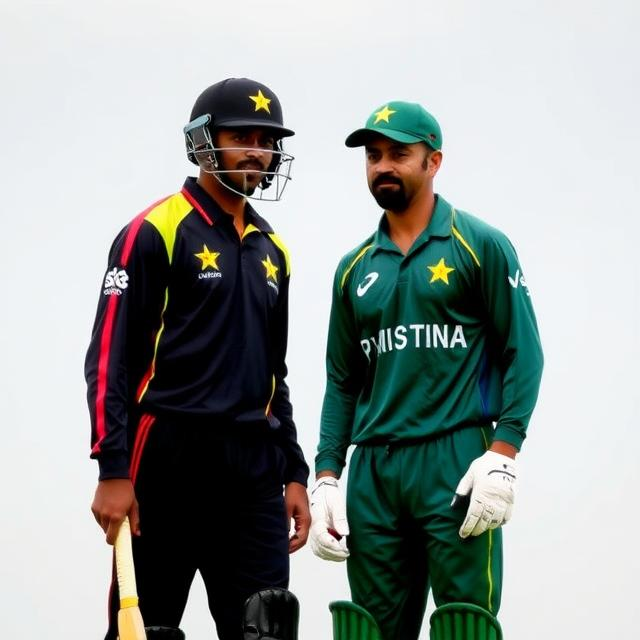Attack on Cricket Team in Pakistan: A Deep Dive into the Complexities

Attack on Cricket Team in Pakistan: A Deep Dive into the Complexities
The recent attack on a Pakistani cricket team, a stark reminder of the ongoing security challenges in the region, has sent shockwaves around the world. Beyond the immediate trauma, the incident unveils intricate layers of political tension, economic fragility, and social anxieties. This article delves into these complexities, exploring the various facets of this tragic event and its repercussions. This isn’t just a sporting incident; it’s a window into a deeply troubled landscape.
The attack, a brazen act of violence, has raised serious questions about the safety of athletes and the stability of the nation. What were the motivations behind this act? And how will such events impact the future of international sports and the people of Pakistan?
Understanding the Context: Pakistan, a nation with a rich history, faces numerous challenges including political instability, economic hardship, and lingering security threats. These are not abstract concepts but tangible realities that impact daily life. The nation’s history is often marked by periods of turmoil, and the attack is a regrettable chapter in this long, often fraught narrative.
The Immediate Aftermath and Reactions
The immediate aftermath of the attack witnessed widespread condemnation from international sports bodies and governments. The outpouring of grief and solidarity demonstrated the shared concern for the safety of athletes and the importance of international collaboration in addressing these kinds of events. Social media platforms were flooded with messages of support and prayers for the well-being of the team and the nation.
Furthermore, the incident prompted a reflection on the complex relationship between security and the pursuit of sporting excellence. Pakistan, like many other developing nations, faces a delicate balance between ensuring the safety of its people and fostering an environment conducive to economic growth and global engagement.
Exploring the Possible Motivations
Dissecting the motivations behind such an attack requires careful consideration. Speculation about specific groups or individuals can be hazardous, particularly in a sensitive geopolitical context. However, it’s critical to understand the broader socio-political landscape in Pakistan, as well as the potential for extremist groups and individuals to exploit and manipulate events to serve their agenda. This does not necessarily mean that every group within society harbors such sinister motives, but it does highlight a pervasive insecurity.
There is no single answer to the motivations, and a multifaceted analysis incorporating political, economic, and social factors is essential to gain a comprehensive understanding of the event.
The Impact on International Sports
Such attacks cast a long shadow on the international sports community. The perception of safety for athletes participating in international events is paramount. International organizations are increasingly scrutinizing security protocols and the environment in which sporting events take place. The issue isn’t just about the physical safety of athletes; it affects the morale of the participants, as well as the broader perception of the host nation.
This incident underlines the importance of a global commitment to fostering a peaceful and secure environment for sporting events. The need for improved security measures and international cooperation in combating extremism are paramount. A united front is essential.
Economic and Social Implications
Beyond the immediate tragedy, the attack has far-reaching consequences for Pakistan. The incident has undoubtedly negatively impacted the nation’s reputation on the global stage. International investors may hesitate to invest, and the tourism industry, a crucial sector of the economy, may suffer as a result of such violent acts.
The attack is a reflection of the social anxieties and political tensions within Pakistan. These underlying issues can significantly hinder the country’s ability to progress on various fronts. Understanding these factors is crucial to developing effective strategies for stability.
The Role of Security Forces
The performance and response of Pakistan’s security forces are critical factors that need assessment. Did the security apparatus adequately safeguard the cricket team? Were there any systemic failures that need to be addressed? The answers to these questions are significant not only for immediate improvements but for long-term efficacy and preventive measures in the future.
A Call for International Cooperation
The attack underscores the need for international cooperation in addressing the multifaceted issue of extremism and its detrimental impact on global security, stability, and sporting events. This requires a joint effort to not only combat the immediate threats but also to tackle the root causes of extremism.
There is a need to provide support to Pakistan in terms of security training and intelligence-sharing. Ultimately, it’s a responsibility shared by the international community. Pakistan’s own internal security mechanisms need to be strengthened. There is an urgent need for effective strategies and interventions.
Looking Forward: The attack on the cricket team highlights the fragility of peace and stability in the region. It serves as a harsh reminder that issues of security are interconnected, demanding urgent attention from both international and national bodies. The long-term recovery requires sustained effort and a comprehensive approach.
This event has deeply affected not only the Pakistani people but also the international community, highlighting the profound impact of violence on sporting events and the need for a more secure and stable world. The path forward is challenging, but it’s vital that we not lose sight of our shared humanity and strive towards a future where sports can flourish without fear or intimidation.
This event is a tragic reminder of the global interconnectedness and the need for greater international cooperation and support to foster a more stable and secure world for all. The implications go beyond the field of play; they resonate with the future of international relations, global security, and the very fabric of peace itself.